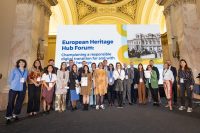-
Join the
Digital Meets Culture
Newsletter! -
Join the
Digital Meets Culture
Open Newsroom! If you have interesting news and events to point out in the field of digital cultural heritage, we are waiting for your contribution.
If you have interesting news and events to point out in the field of digital cultural heritage, we are waiting for your contribution.
-
Free text
-
-
Upcoming events
-
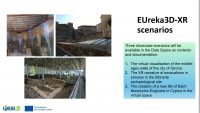 The kick-off for the new project, continuation of the successful EUreka3D, is organized in Pisa by coordinator Photoconsoritum on 26-27 February 2025
The kick-off for the new project, continuation of the successful EUreka3D, is organized in Pisa by coordinator Photoconsoritum on 26-27 February 2025EUreka3D-XR – European Union’s REKonstructed content in 3D to produce XR experiences EUreka3D-XR is the continuation project of EUreka3D, funded by the Digital Europe Programme of the European Union, to develop innovative re-use scenarios and tools that enable the creation … Continue reading →
 Siena (Italy), 8-13 September 2025
Siena (Italy), 8-13 September 2025 As the leading global event on digital technology for documenting, conserving, and sharing heritage—from landscapes and monuments to museums, collections, and intangible traditions—the Digital Heritage International Congress offers a unified stage for major world conferences, workshops, and exhibitions. … Continue reading →
Tag: big data

Artificial Intelligence (AI) and Machine Learning (ML) might be considered by many as synonyms, also because they are the buzzwords of this decade. But actually they are not. They both question though, the ability of the machines to perform and … Continue reading

Applications are invited from candidates who possess the necessary qualifications in order to fill one (1) full time Marie Curie Early Stage Researcher (ESR) Fellow Position in the Digital Heritage Research Lab of the Cyprus University of Technology (CUT) in … Continue reading

The third IEEE Workshop on Big Humanities Data will be held on Thursday, 29 October 2015, in Santa Clara, California, in conjunction with the 2015 IEEE International Conference on Big Data. The workshop will will address applications of “big data” in the humanities, arts, culture and social science and the challenges and possibilities that such increased scale brings for scholarship in these areas. Continue reading

«Citizen science is a way for average people, like you and me, to do real “help answer the big questions” science, even if you never finished high school». So Chandra Clarke, president of editing and proofreading company Scribendi.com, recently speaking at the TEDx Chatham-Kent event on the topic of citizen science. Her talk highlighted the potential of amateur science and the various ways in which the public can engage in academic research. Continue reading
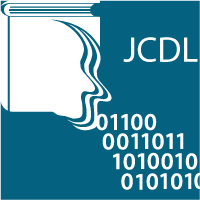
The 2015 edition of the Joint Conference on Digital Libraries will be held from June 21st to 25th, 2015 at the University of Tennessee Conference Center in Knoxville, Tennessee, USA. This year theme is “Large, Dynamic and Ubiquitous –The Era of the Digital Library”. Continue reading

In this issue of the EUDAT news bulletin we bring you the latest updates about the EUDAT conference, which takes place at De Meervaart Conference Centre, Amsterdam from 24-25 September, as well as information about an exclusive EUDAT training session on 30 September, co-located with ISC Big Data 2014. Continue reading

Welcome to the July-August 2014 edition of the EUDAT News Bulletin! These short email bulletins are sent monthly to keep the community updated about the latest news and developments from EUDAT. Continue reading
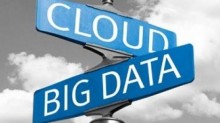
This year the aim of the EGI Autumn conference will focus on the open issues related to the efficient processing of big data towards the realization of the EGI vision of the Open Science Commons, and will feature user-orientated sessions, as well as a rich track on Cloud. Continue reading
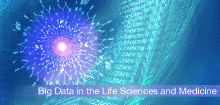
Everywhere we look, the quantity of data is exponentially growing, fueled by the pervasive diffusion of digitalization in modern life. The fields of science, engineering, technology and even social sciences and humanities are undergoing a profound transformation to a data … Continue reading

EGI.eu and APARSEN organised an EGI Community Workshop focusing on “Managing, computing and preserving big data for research”. The workshop, which was held in Amsterdam from 4th until 6th of March 2014, brought together all scientific domains within the EGI community to discuss and develop requirements on e-infrastructures to foster and support the generation, analyse and usage of the research data. Continue reading





























